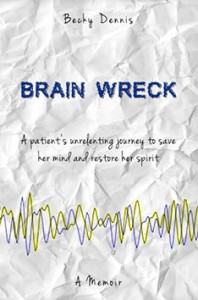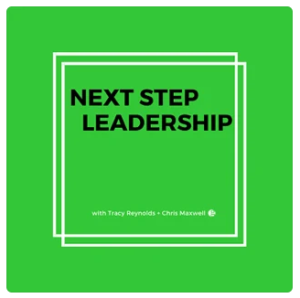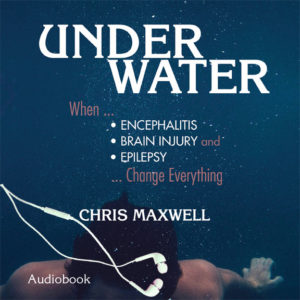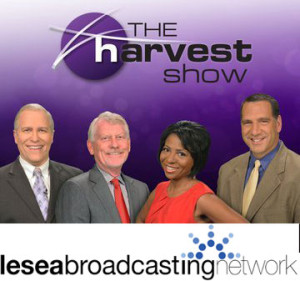I recently wrote about attending and speaking at FACES 2015 Encephalitis Conference in Las Vegas, My Brain is On My Mind. I was honored to meet new friends – people who could understand my lack of understanding, who could remember why we struggle to remember names, who could relate to difficulties that most people will never understand.
Becky Dennis, author of Brain Wreck: A Patient’s Unrelenting Journey to Save Her Mind and Restore Her Spirit, is one of my new friends. I am now reading that memoir, but I wanted to interview her. All of us need to learn from her story, her pain, and her wisdom.
Chris: It was great to meet you in Las Vegas. Thanks for providing us such practical advice.
Becky: Great meeting you as well, Chris. I feel like my family extends each time I meet another encephalitis survivor. And in terms of the practical advice, I wish I’d known these shortcuts in my early days of survival. When our brains are just beginning to recover, it’s near impossible to manage in the world’s high-demand environment. My patient advocacy focus lends itself to coping mechanisms, tips in getting optimal results from doctors, and understanding more about what’s happened to our brains.
Chris: Why is encephalitis so unknown?
Becky: Even though encephalitis strikes 20,000 Americans each year, it’s isolated enough that most doctors will not even treat a patient in their career. Research is limited, so there are few reliable publications to guide doctors and patients. It’s an illness that has gained more publicity given the West Nile Virus epidemic, which in recent years has resulted in encephalitis in 60 percent of reported cases. Also, the recent milestones in understanding NMDA receptor[i] antibody encephalitis, an autoimmune disorder, has prompted more research in the field of this neurological disorder. I’m hopeful that survivors of any type of encephalitis will benefit from the progress being made.
Chris: What are some key facts people need to know?
Becky: No two cases of encephalitis are identical. The part(s) of the brain impacted during the inflammation determine a patient’s outcomes and challenges. More than 50 percent of survivors are unable to return to work because of the long-term impact. There are no treatment protocols for survivors in the U.S., so recovery programs are often limited to the doctor’s familiarity with the disorder or the patient’s (or caregiver’s) sense of persistence and assertiveness for treatment options. Options include therapies such as cognitive, physical, speech and behavioral.
Encephalitis can be an invisible illness for many because the changes one suffers are often cognitive limitations, such as short-term memory loss and the inability to remember words, problem solve or do math. These can severely impact the survivor, but with little or sometimes no detection from others. Therefore, many survivors go through an identity loss.
Chris: Tell us a little more of your story.
Becky: My journey started when I was on business in Asia and struck suddenly with the onset of encephalitis, which included inability to walk and talk. My short-term memory and ability to find words dissolved overnight. And for months, doctors in Dallas (where I live) thought I had an unexplained stroke, therefore I lived in fear of another stroke each day. My gut told me there had to be more answers to the issue, which also destroyed my ability to smell and taste, therefore I lost 30 pounds in the first month. So I pressed for answers and finally was diagnosed 27 months later at Massachusetts General Hospital outside of Boston. Getting an appropriate diagnosis—such a validating experience, marked the beginning of my recovery, which has continued to progress despite numerous issues with blood pressure, sleep, dizziness and such.
Chris: Talk to us about your book.
Becky: My book was originally written to create more awareness about encephalitis as it seems my story is not isolated in terms of common misdiagnoses. Readers walk away with a clearer understanding of the first-hand experience of how encephalitis changes the brain. I illustrate with humor how words disappear, memory fades and easy tasks become a struggle for someone who was functioning exceptionally well before the onset of the illness. Because I thought I was dying, the book chronicles with how I rushed to cross dreams off the bucket list while coming to terms with fears and traumas I didn’t want to take to the grave. Most call it a book of hope and perseverance in the face of trial that could benefit someone with any major health issue. The afterword summarizes many tips for “work arounds” that I learned the hard way and that readers find helpful in their own journey.
Chris: What final words can you offer?
Becky: For survivors, take each day one at a time. Accept that you are changed and that you must embrace your “new you” to move forward. The brain is an amazing organ and it’s very possible to improve. When your body or brain is fatigued, it needs to rest. We all seem to have setbacks when we push ourselves to be who we used to be.
For caregivers, we thank you for your bravery and your sacrifices. And for those hidden struggles, we thank you for words that acknowledge instead of dismiss. Please make time for yourself among all the care you give us because you deserve to maintain as much of your “normalcy” as possible.
No one should have to suffer in silence. I found that journaling significantly helped my outlook when no one else understood what I was going through. (Brain Wreck: A Patient’s Unrelenting Journey to Save Her Mind and Restore Her Spirit, Becky Dennis, Majamo Publishing, 2012).
For more information, visit Becky’s website: www.bdbrainwreck.com
——————————————————————————————————————————
[i] NMDA receptor encephalitis is an auto-immune disorder that happens when antibodies produced by the body’s own immune system attack NMDA receptors in the brain. These receptors control electrical impulses in the brain that are critical for judgement, perception of reality, human interaction, memory, among many other unconscious activities. In healthy people, the immune system produces antibodies that protect against viruses, bacteria or tumors. And with NMDA receptor encephalitis, the antibodies turn against the body itself for reason not yet fully understood. https://www.antinmdafoundation.org










Becky and Chris, thank you so much for once again, spreading the word about “E”. Until it hits someone, or someone in their family, nobody seems really interested in this illness and, unfortunately for us, most do not understand what its residuals do to us.
As I read this I realized how brave the people are who have gone through this dramatic change in their life and are not bitter about it. Sure they may have been at first, but they choose to do the best with what they have now. It makes me reflect on the little I do to make a difference each day even with a fully functioning and healthy brain.
Wow. Reading something like this makes me automatically think about how wonderful someone else’s testimony is because of the great emotion and struggle God brought them through. Then I am reminded of how good God’s grace is that my testimony is just as powerful, knowing that he has kept me from those hardships thus far. It is amazing to see how each individual’s story can have an impact for the Kingdom of God in one way or another.
Reading this makes me think of how people’s testimonies can change someone else life and how some people just need to hear someone’s else to be able to change their lives or even tell their own testimony.
I especially love the comment at the end about journaling. Despite how many people you may or may not have around you, it is hard to find someone who completely understands you (sometimes it even feels like I don’t understand myself). Journaling helps because it is a way to get all your emotions out and a way to prayerfully consider how you feel. Many times, while I was journaling, God has spoken to be about what I am saying to myself. For me, journaling has been a time of healing and a time of moving forward.
Two quotes stood out to me that shocked me. I had no idea how bad this disease was. “More than 50 percent of survivors are unable to return to work because of the long-term impact.” Families destroyed and children suffering from this lack of jobs. This is a horrid statistic. “…my ability to smell and taste, therefore I lost 30 pounds in the first month.” To not be able to taste would be pure torture. I could not imagine venturing into this different world. These people truly are hurting and this testimony has changed my perception on life forever.
Testimonies can be hard to tell, but they are so honored by God. He heals us when we put forth our struggles and hurts to others. I love hearing testimonies and also telling my testimony.
Often times in life I want something so bad that i work my butt off to achieve it. In this process, sometimes i can get lost. I start focusing on the wrong things. This is me letting my fears of failures and inadequacy lead me and control my life. This especially heightens when i face a problem in my life. No matter what difficulty i face or struggle come across, the most important thing is that i keep my eye focused on the Lord as He calls me on this wild journey.
While reading this, it was encouraging to hear the stories of people triumphing over great trials and struggles and coming out at the end stronger- whether it be spiritually, emotionally, or even physically.